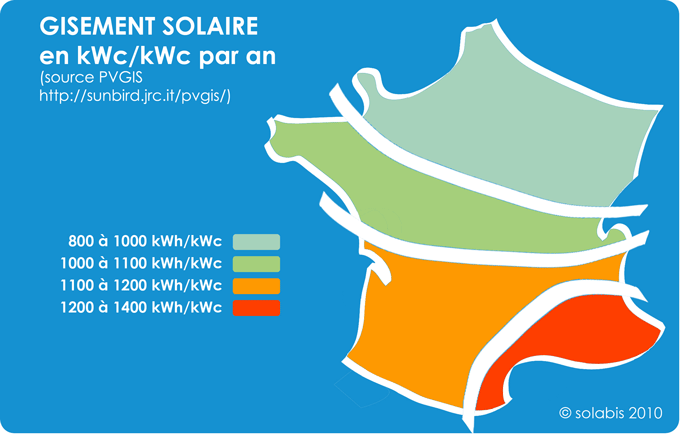That's what I think too :
- PV will continue to fall, now that there is a large market on a global scale, R / D is on the way, progress will follow ... The fall in the price of kWp is almost linear!
See eg:
http://www.enerzine.com/1/13966+modules ... prix+.html
(...)
A dizzying fall in prices
According to Photon International magazine, the average price of monocrystalline modules fell from € 1,44 per watt in early January 2011 to € 0,82 per watt in January 2012, a drop of 43,1%. The average price of polycrystalline modules has decreased from € 1,47 per watt in early January 2011 to € 0,81 per watt in January 2012, a decrease of 44,9%. These prices are understood to be average prices, which means that “unbranded” modules found a buyer at € 0,70 per watt, the prices for branded modules being negotiated around € 0,90 per watt.
As a result, the price of photovoltaic systems is also in free fall.
(...)
[we can criticize the policy, but it is also an effect of the production volumes linked to the subsidy systems in place in the majority of countries; and the Chinese state market, which is another form of subsidization!]
- if the policy is intelligent, the subsidy will therefore be decreasing (this is currently the case in France, every quarter the tariff is revised downwards)
For "major projects", we are already less than 17 cents per subsidized kWh!
- the production price of electricity will increase: investments in upgrading existing nuclear power plants, construction of a new power plant (I hope there will be only one!), gradually the dismantling of the first power plants and the ultimate storage ... [find out how things are going in Brennilis, a little "hello", to imagine what it could cost!]
So the subsidy will go out! Sooner or later. It's mechanical. First, the new connections will no longer be subsidized, but the purchase price will be enough to finance projects for new installations, since they are less costly. The old contracts, with their subsidy, will continue until their expiry (because the investment was much more expensive). And then these contracts will also gradually expire ...
Those whose installation will still function (or can be relifted at a lower cost), will be able to negotiate the sale at the market price. But since there will always be a price difference between the repurchase at production cost and the purchase of electricity at the "customer" rate (= which includes in addition to the production price, the price of transport, fixed charges operator, its margin ... so roughly 2,5 or 3 X the cost of production; currently, the average KWH costs production in France 5 cents per KWH and is sold, including tax, around 13 cents / displayed price = 8 and a few, without any tax, VAT or subscription); the difference is the subscription and the sum of all taxes - 4 or 5 lines at the end of the invoice!
So in fact, they will have
SO interest in self-consumption (it will be more "profitable" not to be charged 13 cents rather than to sell at 5 - I use today's rates to illustrate, but the gap will remain).



